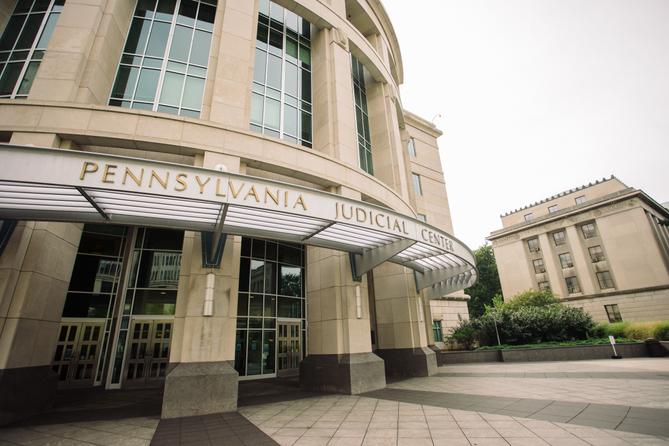This story first appeared in The Investigator, a weekly newsletter by Spotlight PA featuring the best investigative and accountability journalism from across Pennsylvania. Sign up for free here.
Pennsylvania’s courts have asked for a 12% budget increase, but for the fourth year in a row, judicial officials won’t have to explain their proposal or face questions from lawmakers during public hearings.
Earlier this year, Democratic Gov. Josh Shapiro pitched a $44.4 billion budget that includes specific proposals for each department under his jurisdiction, as well as the state judicial system.
Ahead of the June 30 deadline to pass a new budget, the Appropriations Committees in the state House and Senate are holding hearings to dig into the proposals and ask department heads about their policies.
These hearings give Pennsylvanians the opportunity to learn about the inner workings of the state government they pay for, and grant lawmakers the chance to force officials to be transparent in a public venue.
The state’s court system participated in budget hearings in 2017, 2018, and 2019, but will not do so this year.
“There is no statute or rule that requires budget hearings, and hearings are only one part of the process of review,” Beth Rementer, a spokesperson for state House Democrats, told Spotlight PA in an email.
State agencies are brought in every year “to provide clarity on the governor’s budget proposal” while others, like the courts, attend budget hearings “on a rolling basis,” Jason Thompson, spokesperson for state Senate Appropriations Committee Chair Scott Martin (R., Lancaster), wrote in an email.
“It is worth noting that the review of the governor’s budget plan is not restricted to the three weeks of budget hearings,” Thompson wrote. “If there are specific questions or concerns regarding the courts’ budget requests at any point in the budget process, those issues can typically be addressed through conversations and meetings that are always ongoing.”
Spotlight PA repeatedly asked the Administrative Office of Pennsylvania Courts, or AOPC, and the Appropriations Committees which agency decided to not hold budget hearings for the courts.
Stacey Witalec, communications director for the AOPC, deferred the question to Rementer, who did not clarify who made the decision.
Witalec did not answer questions about what budget items the judiciary branch prioritizes in the current proposed budget, or how it negotiates details with lawmakers or the governor’s office.
Witalec said the public can learn about the judicial budget by looking through its proposal — published nearly a month after Shapiro presented his — on the AOPC website and on social media.
In its proposed budget for the next fiscal year, the judicial system asks for more than $406 million — the same amount of general funding suggested by Shapiro. That’s about 1% of the $44 billion budget for the commonwealth.
The judiciary’s proposed budget requested nearly half a million more from restricted revenues for the online portal that provides access to certain case information. The proposal said that money was originally earmarked for system maintenance but was diverted and paused in recent years, resulting in layoffs.
“Pennsylvania’s courts have been historically underfunded,” Jay Silberblatt, president of the Pennsylvania Bar Association, said in a statement. “Therefore, the PBA fully supports the budget figure proposed by the Administrative Office of Pennsylvania Courts.”
Silberblatt helped spearhead a PBA task force that looked into creating a statewide electronic filing system — the current system does not include civil case filings — as a 1987 Pennsylvania Supreme Court decision mandated. But the effort has never been fully funded, and “the process to determine the budget needed to create a Pennsylvania e-filing system has yet begun,” Silberblatt said.
SUPPORT THIS JOURNALISM and help us reinvigorate local news in north-central Pennsylvania at spotlightpa.org/statecollege. Spotlight PA is funded by foundations and readers like you who are committed to accountability and public-service journalism that gets results.
